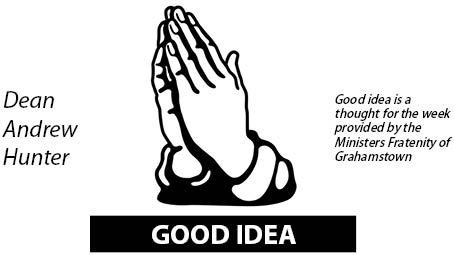It is common knowledge that we here in this town are facing a crisis. The water shortage is impacting on us all. No one can walk by the heaps of rubbish and pretend that nothing is wrong. Schools are struggling, with children being sent home because there is no water for the toilets, to wash hands or to cook food. Many homes have been without water for days and days. We need rain. We need compassion from each one of us to help where we can. We need wisdom on the part of leaders to address the crisis.
Wisdom. Choosing the right path; deciding what is best. How to live wisely in the midst of our troubled world. The opposite of wisdom is foolishness, choosing the wrong path, a road that leads to destruction. Some of the books of the Old Testament are called “Wisdom Literature” – the book of Proverbs, the Psalms, Job, Ecclesiastes. They present us with choices between right and wrong, finding our way through life in difficult circumstances. They often contrast the wise person as one who follows God’s ways, who trusts in God, with the foolish person, who does not follow God and God’s ways.
However, in the “Sermon on the Plain” (Luke 6:17-26) Jesus gives another perspective. Instead of speaking words of comfort and assurance, he speaks words that are deeply unsettling and disturbing. He first speaks to those disciples who are poor, the hungry, the grieving, the excluded. “You are blessed”, Jesus assures them, “because the kingdom of God is yours, you who are hungry will be satisfied, you who are mourning will laugh, you who are insulted and hated will have a rich reward in heaven”. Then he speaks to those disciples who are rich, who are well fed, who are happy, who are popular. “Woe to you”… “Alas for you”…” You have had your time of happiness; you will go hungry; you will mourn and weep. Your popularity is a sham because that is how the false prophets were treated. I am sorry for you.”
Imagine a stunned silence. Imagine uncomfortable glances from some. What is he on about? This is not what we came to hear. And from others, the dawning realisation that perhaps things would change. Perhaps there was hope. Perhaps God did see suffering and hopelessness. Perhaps there was a future. Perhaps poverty and hunger and struggle were not to be a sign of God’s curse or condemnation after all. Perhaps wealth and riches, pleasant as they were, were not necessarily a sign of God’s blessing, but of something else. The need for compassion. The call for mercy. The reminder to look to God. To trust not in one’s own strength and ability and achievements, but to trust in God. To delight not in arrogance and power, but in humility.
So let us be disturbed. All too often, people think that God’s blessings are seen in wealth, in comfort, in prosperity. People are told, “Be faithful, and God will pour out riches upon you. Wealth is a sign of God’s blessing.” But Jesus says otherwise. He looks at those who are struggling, who are powerless, who are without water, without food, who are without opportunities, and he pronounces blessing on them. On you and me. He says that there is a future. That this is not the only reality. That things will turn. These words of Jesus resound in our time as words of change and hope. He challenges the complacency of the rich, those who have all they need, those who are comfortable, those who do not know what it is to be anxious for tomorrow.
Let us be merciful. These words of blessings and woes, these uncomfortable words, are for us today, here in Makhanda, Grahamstown. To question. To disturb. To be disturbed. To be unsettled. They give us a picture of a new community, formed by the grace of God, where we look beyond ourselves to those around us, brothers and sisters in Christ, people in need. Desperate. And they call us to especially to show mercy. To be changed and transformed. To share.
If we have water, and we choose to take a 20 minute shower, knowing that our town is on the brink of no water – is that mercy? If we have food and shelter, if we are happy and content, and we know that others have none, or if we have doors of opportunity open for us, but we see that those doors are closed for others, and we do nothing – is that mercy? So let us do what we can. Let us allow ourselves to be disturbed, shaken, uncomfortable, unsettled, have sleepless nights. Because in this uncertain space of discomfort, God is speaking to us.
Let us be hopeful. You and I are invited to trust, believe, have faith, commit our ways to God, to seek God’s will in all things. To know that in our hunger and poverty, in our struggles, God sees and loves and embraces and promises a future, new life, a way forward.
The Very Reverend Andrew Hunter
Dean of Makhanda (Grahamstown) Cathedral


